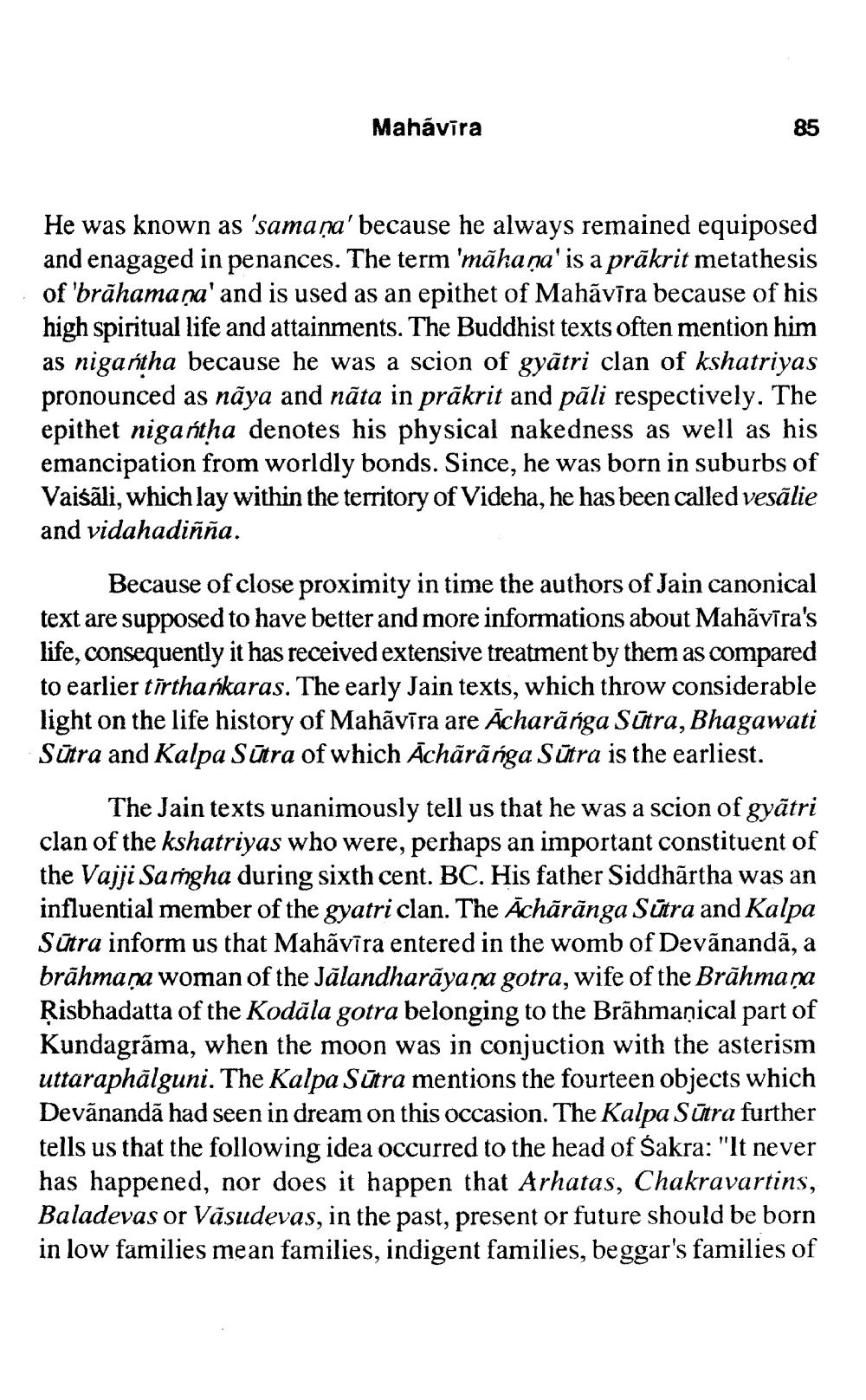________________
Mahavira
85
He was known as 'samana' because he always remained equiposed and enagaged in penances. The term 'mãhana' is a prākrit metathesis of 'brāhamana' and is used as an epithet of Mahāvīra because of his high spiritual life and attainments. The Buddhist texts often mention him as nigantha because he was a scion of gyātri clan of kshatriyas pronounced as nãya and nāta in prākrit and pāli respectively. The epithet nigantha denotes his physical nakedness as well as his emancipation from worldly bonds. Since, he was born in suburbs of Vaisāli, which lay within the territory of Videha, he has been called vesālie and vidahadiñña.
Because of close proximity in time the authors of Jain canonical text are supposed to have better and more informations about Mahāvīra's life, consequently it has received extensive treatment by them as compared to earlier tirthańkaras. The early Jain texts, which throw considerable light on the life history of Mahāvīra are Acharãnga Sūtra, Bhagawati Sūtra and Kalpa Sūtra of which Āchārānga Sūtra is the earliest.
The Jain texts unanimously tell us that he was a scion of gyātri clan of the kshatriyas who were, perhaps an important constituent of the Vajji Samgha during sixth cent. BC. His father Siddhārtha was an influential member of the gyatri clan. The Achārānga Sūtra and Kalpa Sūtra inform us that Mahavira entered in the womb of Devānandā, a brāhmaṇa woman of the Jālandharāyaṇa gotra, wife of the Brāhmaņa Risbhadatta of the Kodāla gotra belonging to the Brāhmaṇical part of Kundagrāma, when the moon was in conjuction with the asterism uttaraphālguni. The Kalpa Sūtra mentions the fourteen objects which Devānandā had seen in dream on this occasion. The Kalpa Sūtra further tells us that the following idea occurred to the head of Sakra: "It never has happened, nor does it happen that Arhatas, Chakravartins, Baladevas or Vasudevas, in the past, present or future should be born in low families mean families, indigent families, beggar's families of




